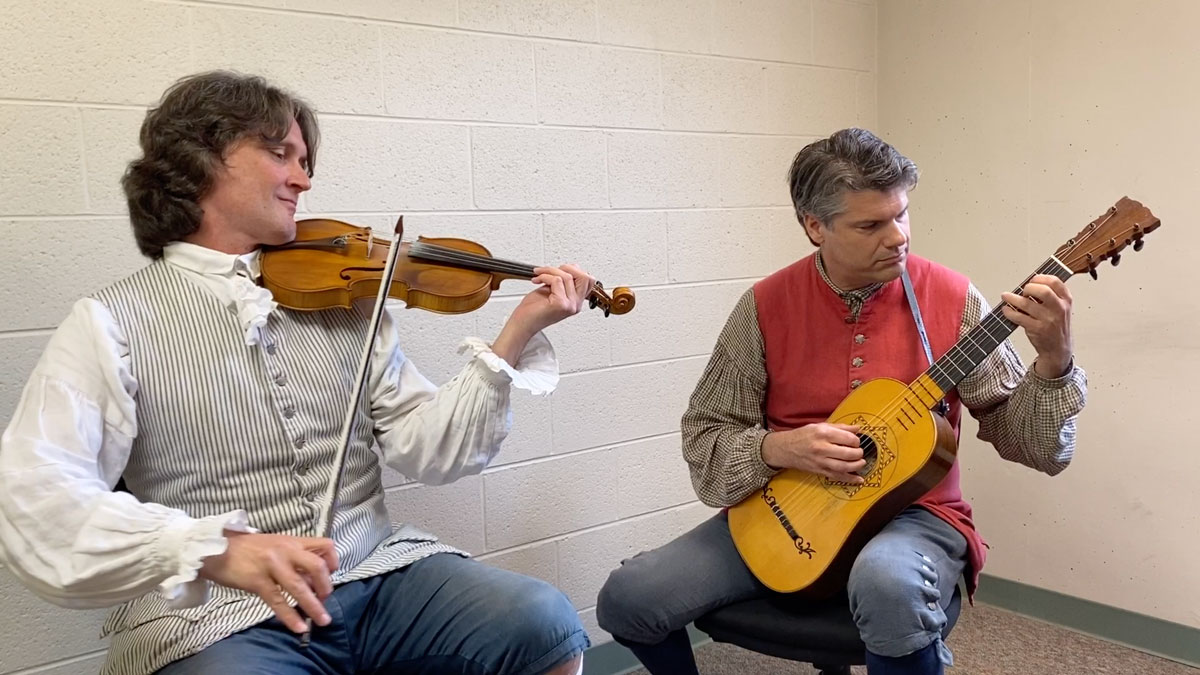Music enthusiasts have long enjoyed our nation's varied music making traditions, its continuing fusion of the experiences and influences of so many inspires music lovers around the globe.
A key crossroad along the often challenging paths in our nation's history is Juneteenth: an early and positive step forward to begin a long and continuing effort to hopefully improve the lives of all Americans. Although much remains to be done, music and the musicians that bring music to life, regardless of skin color, have often helped sooth and inspire even amid adversity.
In our effort to share music from the 18th century, including instruments introduced to America early in its history by African Americans and instruments central to America's musical development, Stephen Christoff and I offer two selections:
First is In the Fields of Frost and Snow (performed on the Jaw Harp and Coopered Drum). The Jaw Harp and Coopered Drum date back many centuries and are both known to have been a part of some African Americans' music making in early Virginia; the Coopered Drum we're using is a reproduction produced by Colonial Williamsburg's Coopers.
The second tune was published in Scotland in 1782, listed as "A Virginia Negro Jig" titled, Pompey Ran Away (performed on the Banjar, Spanish Guitar, and Baroque Violin).
The Banjar is an early banjo and its influence has permeated American music for centuries, the instrument I'm playing is a reproduction of a banjar being played in an 18th-century painting we have at the Abby Aldrich Rockefeller Folk Art Museum titled, The Old Plantation.)
The violin was the most popular instrument in the 18th century, and its practitioners came from all walks of life and included many enslaved persons of African descent along with free blacks. Many of the balls, assemblies, and occasions in 18th-century Virginia featured music provided by enslaved persons of African descent.
The positive and direct impact of African Americans throughout my life, musically in general and personally in particular, has been enormous. A key part of that life enriching opportunity, and one for which I am appreciative, has been this opportunity to celebrate Juneteenth.
Wayne A. Hill is a violinist and composer in the Jug Broke Theatre Co., performing throughout Colonial Williamsburg’s Historic Area.
